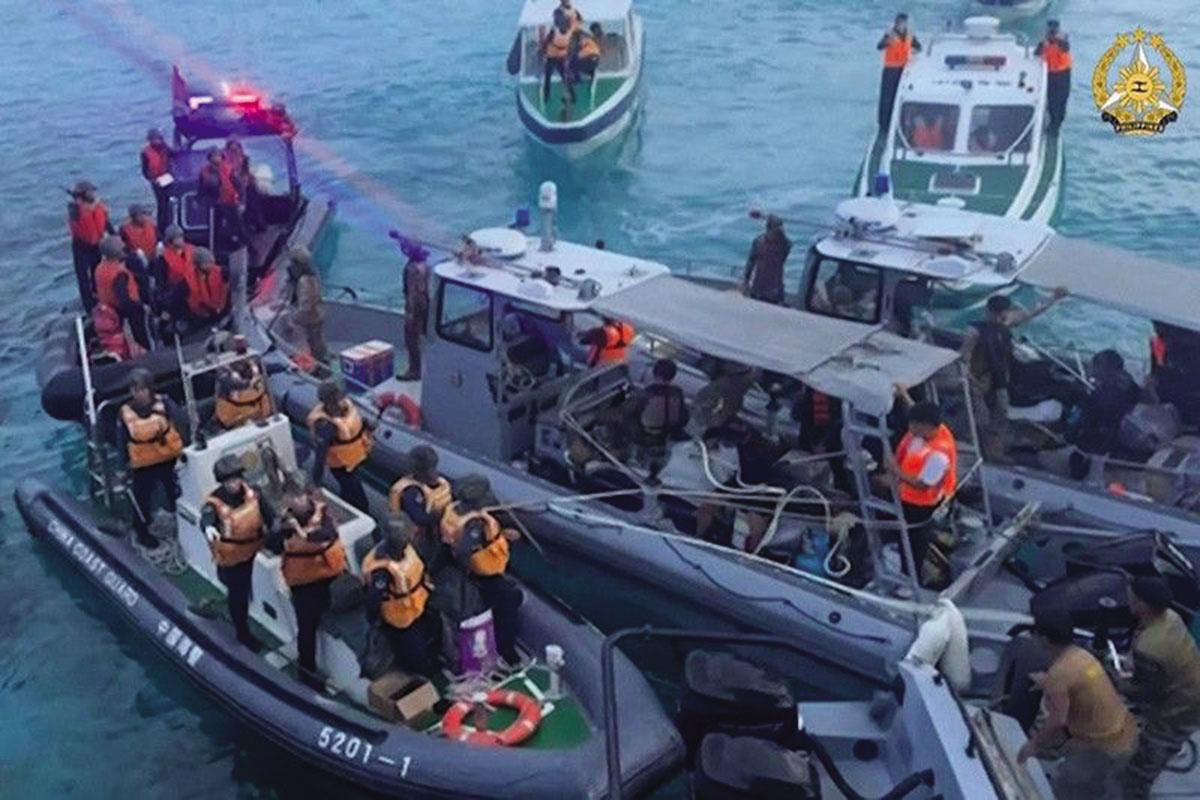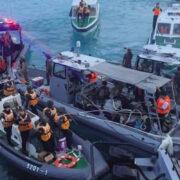
By: Babe Romualdez
I was surprised, but actually more like shocked, about the information passed on to Senator Imee – most likely coming from a rumor-mongering individual – that the Chinese are planning missile attacks on 25 sites all over the Philippines. It’s really unfortunate that this type of fear-mongering or even warmongering could add fuel to the already tense situation our country is facing in the West Philippine Sea. Fortunately, the PRC immediately denied such information.
Another one is this YouTube video going around with such an alarmist title in Filipino that, roughly translated, goes – “Last warning from China! PBBM has been threatened: Will there be dialogue or war if the Philippines refuses to surrender?” – implying that China has threatened to go to war against the Philippines.
These people do not realize the magnitude of what they are doing in exacerbating the situation even as our government is doing all it can, using maximum restraint and diplomacy, to de-escalate the tension in the West Philippine Sea.
Clearly, they do not – or deliberately refuse to – fully understand the extremely serious situation our country finds itself in today, especially in light of our strategic location with the northernmost portion just 93 miles away from Taiwan. And then of course there is our continuing territorial dispute regarding conflicting claims over the Spratly Islands with fellow ASEAN members Vietnam, Malaysia and Brunei, plus China and Taiwan.
Surveys show that over 90 percent of Filipinos want the government to have a more assertive stance – and understandably so, because they know the importance of securing our borders and protecting our maritime territory. Losing a portion of our territory today can mean losing more each day until we have no country to speak of.
But Filipinos also fully understand and totally agree with President Marcos when he said that we are not in the business of instigating wars because the priority agenda of this government is to “provide a peaceful and prosperous life for every Filipino.”
And while we are ready to use every means available to defend ourselves, we are also practicing maximum restraint and using diplomacy to ease the tension. A recent survey released by Pulse Asia showed that a big number of Filipinos believe that the most effective measure to reduce tensions is to “continue diplomatic discussions” on coming up with a code of conduct to govern the actions of countries that have conflicting maritime claims, which is what President Marcos has been pursuing all along.
I must give full credit to the diplomatic skills of one of our very best career diplomats in the Department of Foreign Affairs, Undersecretary for Bilateral Relations and ASEAN Affairs Tess Lazaro, who has been extremely valuable in navigating this delicate situation in the best way possible and finding ways to bring down the tension with the hope of some success.
USec Lazaro – who obtained her Bachelor of Arts, International Studies from Maryknoll (now Miriam) College and finished her Bachelor of Laws at the University of the Philippines – is a veteran diplomat who has served as Ambassador to France, Monaco and Switzerland. She was the Philippines’ Permanent Representative to UNESCO and was chairperson of the Group of 77 Coalition.
USec Lazaro headed our team in the dialogue between the Philippines and China, where both countries committed to de-escalating the tension “without prejudice to their respective positions” regarding the dispute involving Ayungin Shoal. The undersecretary says “both sides recognized that there is a need to restore trust, rebuild confidence and create conditions conducive to productive dialogue and interaction,” noting the incidents involving Chinese and Philippine troops.
Although “substantial progress on developing measures to manage the situation at sea” will hopefully be achieved, it’s not also surprising that “significant differences” still remain. Hopefully, both sides will continue engaging in dialogue to find a mutually acceptable resolution to the issue.
Those present during the dialogue told me they were very proud of, and impressed by, the self-assured demeanor of USec Lazaro, highlighting that we will continue the pursuit of peace using the diplomatic front, but also making it clear to Vice Foreign Minister Chen Xiaodong that the Philippines would be “relentless in protecting its interests and upholding its sovereignty, sovereign rights and jurisdiction in the West Philippine Sea.”
The June 17 incident in Ayungin Shoal that resulted in injuries to several Philippine Navy personnel, with one of them losing a thumb in the process, has shocked the international community because of the brutal, unprovoked behavior of the Chinese Coast Guard, who were shown boarding and puncturing Philippine boats and destroying communications equipment.
During the Heritage Foundation lecture given by former Trump Deputy National Security Advisor Matt Pottinger, whom I know personally, he referred to the June 17 incident in Ayungin, saying that it was a “dress rehearsal” for invading Taiwan and that “Beijing has already attacked to such a degree that it should trigger our mutual defense treaty response if President Marcos, and in discussion with President Biden, decide that that would be the best course.”
Matt put his remarks into context, saying it does not mean we could have war – simply that there is a need to acknowledge what is happening and start imposing much more serious costs to China, including by way of economic measures.
The bottom line for us, however, is still this – we will continue to assert our sovereignty while following the path of maximum restraint and diplomacy, which the president clearly articulated when he said that in defending our nation, we will stay true to our Filipino nature of wanting to settle all these issues amicably. (Philstar.com)
* * *
The opinions, beliefs and viewpoints expressed by the author do not necessarily reflect the opinions, beliefs and viewpoints of the Asian Journal, its management, editorial board and staff.
* * *
babeseyeview@gmail.com






